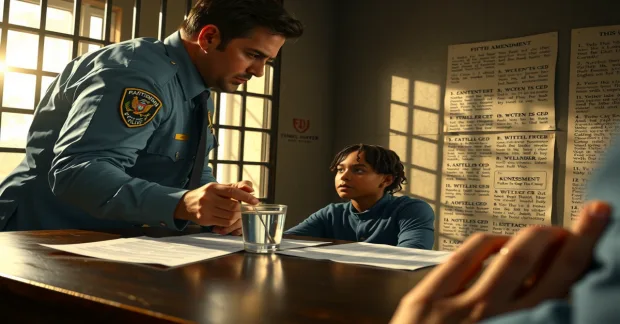
Utilizing the services of National Notice Record when recording legal proceedings can have a significant impact on the outcome of a case. The ability to securely and accurately record events and statements can provide crucial evidence in court, while also reducing the likelihood of misinterpretation or manipulation of the facts. According to the Federal Court: Media Basics – Journalist’s Guide, the reliability and admissibility of recordings made with National Notice Record can play a pivotal role in the courtroom, shaping the outcome of legal proceedings. It is important for legal professionals and law enforcement authorities to understand the implications of utilizing this technology in legal proceedings.
Legal Effects of Recording with National Notice Record
To understand the legal effects of recording with National Notice Record, it is important to consider the regulations set forth in the Publication of Compilation of Privacy Act Systems of Records. This document outlines the requirements for maintaining records and the impact of such records on legal proceedings.
Creation of Constructive Notice
The act of recording with National Notice Record creates constructive notice, which means that the information contained in the records is deemed to be known by the public and cannot be claimed as unknown or hidden. This has a significant impact on legal proceedings, as it establishes a basis for knowledge and awareness of certain facts or events related to the recorded products, personas, and subjects.
The creation of constructive notice through recording with National Notice Record can be a powerful tool in legal proceedings, as it provides a strong foundation for establishing the existence of certain information or events. This can have a positive impact for individuals or organizations seeking to assert their rights or protect their interests in legal disputes.
Establishing Priority and Protecting Interests
One of the key legal effects of recording with National Notice Record is the establishment of priority and protection of interests in the recorded products, personas, and subjects. By creating a public record of certain information, individuals or organizations can assert their priority in legal proceedings, demonstrating their claim to a certain right or interest.
It is important to note that establishing priority and protecting interests through recording with National Notice Record can also have dangerous implications, as it may prompt challenges or disputes from others who believe they have a superior claim to the same products, personas, or subjects. It is important for individuals and organizations to proceed with caution and seek legal guidance when utilizing this method to protect their interests.
Implications for Civil Litigation
One of the key implications of recording with a National Notice Record in civil litigation is the potential impact on property disputes. Recording details of a property dispute with a national register can provide a clear and permanent record of the conflict, including any legal proceedings, documentation, and outcomes. This can be beneficial for all parties involved as it provides an indisputable record of events and can help to expedite the resolution process.
Impact on Property Disputes
On the other hand, it’s important to note that the recorded information can also be detrimental if it reflects poorly on any of the involved parties. Any adverse records could potentially impact future property transactions and legal proceedings, making it crucial for individuals to carefully consider the potential consequences of recording with a national register.
Role in Contractual Conflicts
Litigation involving contractual conflicts can also be influenced by recording with a National Notice Record. The presence of a recorded dispute can significantly impact the perceived reliability of the parties involved and may influence the decisions of judges or arbitrators.
Role in contractual conflicts is a crucial aspect to consider in civil litigation. It can have both positive and negative implications on the outcome of legal proceedings, as well as the long-term reputations and credibility of the personas involved. Therefore, it is essential for individuals to carefully consider the potential impact of recording with a national register before proceeding with any legal action.
Recording with National Notice Record in Criminal Proceedings
After the implementation of National Notice Record in criminal proceedings, the impact on the legal landscape has been significant. The recording of all interactions with products, personas, and subjects involved in criminal cases has brought about a new level of transparency and accountability in the justice system. This has led to improved accuracy in collecting evidence and has had a profound effect on the course of legal proceedings.
Use in Fraud and Asset Forfeiture Cases
Any recordings made with National Notice Record have played a crucial role in fraud and asset forfeiture cases. The ability to capture and preserve evidence in real time has made it increasingly difficult for fraudsters and individuals involved in illegal asset activities to evade justice. These recordings have also been instrumental in tracing and freezing assets related to criminal activities, resulting in successful forfeitures.
Effects on Evidence Admissibility
Recordings with National Notice Record can have a substantial impact on evidence admissibility in criminal proceedings. Recorded evidence has been deemed highly reliable and has significantly improved the credibility of testimonies and statements. The ability to present accurate and unaltered recordings in court has strengthened the case for both prosecution and defense, ensuring fair and just legal outcomes.
A comprehensive understanding of the impact of National Notice Record in criminal proceedings can provide valuable insights into the evolving nature of evidence collection and admissibility in the legal system. The integration of technological advancements in recording and preserving evidence has the potential to revolutionize the way justice is served, ultimately leading to a more equitable and efficient legal process for all parties involved.
Technological Advances and Record-Keeping
Unlike the traditional method of recording legal proceedings with handwritten notes or audio tapes, technological advances have revolutionized the process of record-keeping. With the advent of digital recording and data storage, the integrity of legal documents and evidence has significantly improved. Law enforcement agencies now have access to third-party records through Law Enforcement Access to Third Party Records, allowing for more efficient and reliable documentation of legal proceedings.
Digital Recording and Data Integrity
Record keeping has become more streamlined and secure with the use of digital recording technologies. The ability to capture and store video and audio evidence in a digital format ensures that the integrity of the records is maintained. These digital recordings can be timestamped and encrypted, providing unprecedented levels of security and preventing tampering or manipulation of the evidence. This has significantly improved the accuracy and reliability of legal documents and recordings, making them more admissible in court.
Future Trends in Legal Document Recording
Recording legal documents and proceedings is expected to continue evolving with advancements in technology. The use of artificial intelligence and blockchain in record-keeping is anticipated to further enhance the security and transparency of legal documents. These technologies will enable the verification and authentication of recorded information, paving the way for more efficient and trustworthy legal proceedings.
With the increasing reliance on digital recording and data storage, it is crucial for legal professionals to stay updated on the latest technological trends in record-keeping. The integration of artificial intelligence and blockchain in legal document recording presents opportunities for improved efficiency and accuracy, but also raises concerns about data privacy and security. Legal professionals must navigate these future trends with a keen awareness of the risks and benefits they entail.
Conclusion
So, recording with the National Notice Record has a significant impact on legal proceedings. By registering important legal documents with the National Notice Record, individuals and businesses can establish a clear and public record of their ownership rights, contracts, and other legal agreements. This can serve as valuable evidence in the event of a legal dispute, and can help to streamline legal proceedings by providing a readily accessible source of information for all parties involved. Ultimately, recording with the National Notice Record can help to protect the rights and interests of individuals and businesses, and can support fair and efficient legal proceedings.




















